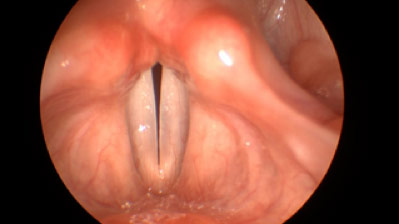- Question: How do the ingredients in e-cigarettes and vaporizers affect respiratory health? - August 16, 2019
- Bad Technique and Vocal Injury - January 9, 2019
- Is Edible Marijuana Dangerous for the Voice? Myths Dispelled - December 18, 2018
- Surprise! You have a hemorrhage - January 31, 2018
- Graves’ Disease: Treatment Overview - September 25, 2017
- Adele and the Stigma of Vocal Injury - July 11, 2017
- Vocal Curbside Consult: How does the thyroid affect the voice? - May 16, 2017
- Vocal Curbside Consult: How do hormones affect the voice? - May 3, 2017
- Vocal Curbside Consult: How do emotion and stress affect the voice? - April 17, 2017
- Vocal Curbside Consult: Vocal Recovery After Illness - April 7, 2017

A good voice comes from two major components: healthy vocal folds and proper voice use. It is not uncommon for a singer or professional voice user to have vocal complaints but have normal appearing vocal folds. In these instances, vocal technique is often the source of the problem. Voice therapy is geared towards this part of the problem.
This applies to the speaking and singing voice. Because we use the same instrument to speak and to sing, either task can injure the voice and make the other task more difficult. Often singers are excellent technicians with their singing voice but speak incorrectly, thereby setting themselves up to sing with a tired and misused instrument.
What is voice therapy?
Voice therapy is the practice of treating the voice non-surgically by emphasizing healthy voice use. It is essentially physical therapy for the voice and is a highly effective method to reduce the need for surgery. Therapy is also a critical component in optimizing surgical outcome by minimizing vocal strain. However, voice therapy is only as effective as the skill of the therapist.
Voice therapy uses highly individualized exercises and techniques to:
- Optimize the voice
- Assist in pre-operative and post-operative voice use
- Eliminate harmful vocal use habits
- Strengthen and coordinate the vocal folds
- Educate about healthy voice use
- Adjust behaviors or lifestyles that caused the voice injury
Who should have voice therapy?
Almost anyone who relies on their voice for their living can benefit from voice therapy. Even without a distinct disease or injury, most people do not use their voices optimally to minimize fatigue and maximize comfort.

Voice therapy is especially critical in the treatment of voice disorders. Commonly, vocal nodules can be completely eliminated with voice therapy alone. In more complex cases, such as vocal polyps or cysts, voice therapy may be insufficient. In these situations, vocal surgery may be necessary; however, surgery should never be the only treatment. Concurrent voice therapy is critical to ensure an optimal outcome.
Who provides voice therapy?
Voice therapy is a highly-specialized form of general speech therapy, and is performed by a licensed and certified speech-language pathologist (SLP). Speech pathologists undergo specialized training to become voice therapists, ensuring they are skilled in helping the injured voice.
It is often very difficult to find a skilled voice therapist, as general speech therapists are permitted to do voice therapy. Often the only way to be sure the therapist is proficient in voice therapy techniques is to find one through a laryngologist or in a laryngologist’s office.
At Osborne Head and Neck Institute’s Division of Voice and Laryngology, healthy voice is emphasized. This means having detailed analysis with distal chip laryngoscopy and stroboscopy as well as complex voice analysis and voice therapy. If you have any questions as to whether or not you could benefit from voice therapy, please contact the Osborne Head and Neck Institute for a voice consultation.
To learn more about voice therapy, visit: http://www.voicedoctorla.com.



